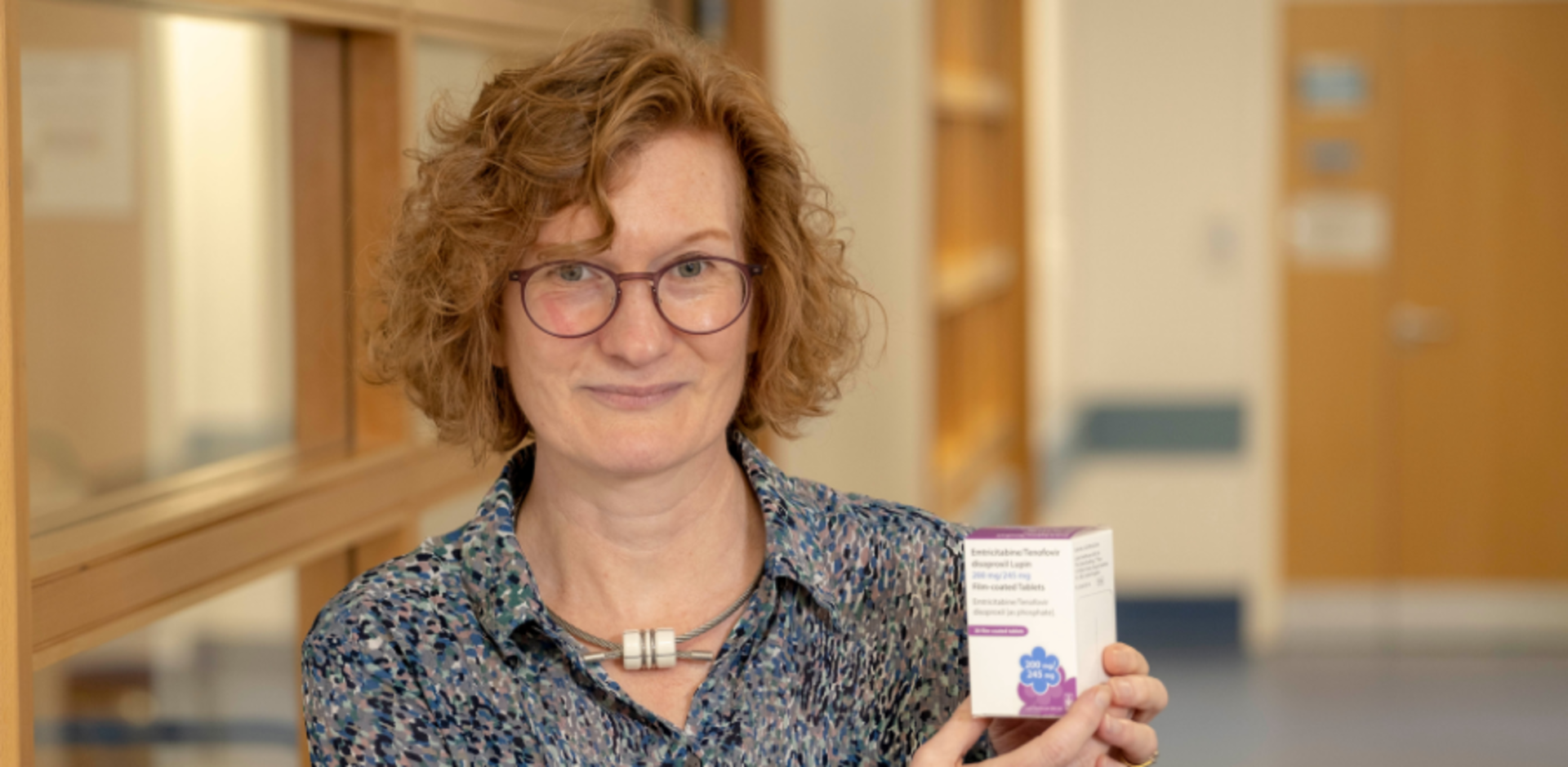New research shows huge fall in new HIV infections after roll-out of PrEP in Scotland

A research study led by Glasgow Caledonian University (GCU) Professor Claudia Estcourt has revealed a 20 per cent reduction in new HIV diagnosis in gay and bisexual men as a result of the implementation of the first PrEP (pre-exposure prophylaxis) drug programme in Scotland in July 2017.
The research, funded by Public Health Scotland and published in the prestigious AIDS online journal here, also revealed a large cohort of men attending sexual health clinics fell by 43 per cent.
Commenting on the latest research, Public Health Minister Mairi Gougeon said: “Scotland has made huge progress in detecting and treating HIV and was one of the first countries in the world to have an HIV Pre-Exposure Prophylaxis service, offering free preventative medication to those deemed at highest risk of acquiring HIV.
“The success of the national PrEP programme is a credit to Scotland and Professor Claudia Estcourt’s research is an important milestone in our goal to eliminate new HIV transmission by 2030.
“These findings show what can be achieved by supportive policy, clinical vision and crucially, true collaborative working across public health, clinical care and community-based organisations.”
GCU researchers Professor Sharon Hutchinson, Professor David Goldberg and Dr Alan Yeung were also involved in the study along with experts from NHS Greater Glasgow and Clyde, Public Health Scotland, University of Glasgow and NHS National Services Scotland.
They found that among the 3,256 gay and bisexual men who attended Scottish sexual health clinics between 2017 and 2019 and were prescribed PrEP, which involves taking anti-HIV pills daily or around the time of sex and is available free from NHS sexual health clinics, at least once, incidence of HIV infection fell by 75 per cent.
Incidence also fell by 32 per cent among men who had never taken PrEP, suggesting that PrEP users remaining HIV negative have benefits for their sexual partners too.
However, the research found that the PrEP programme is not reaching people from other groups who could benefit, including women, heterosexual men, people from some African communities, transgender people and people who inject drugs. Only two per cent of the people who have taken PrEP so far are not gay and bisexual men.
Professor of Sexual Health and HIV Claudia Estcourt said: “We have shown that it is possible to achieve important reductions in HIV incidence in men who have sex with men when PrEP is implemented within routine care
“Our findings suggest that PrEP can make a wider contribution, alongside other prevention interventions, in reducing population level risk of HIV for those not on PrEP.”
The next challenge will be to bring these benefits to a wider and more diverse cross-section of the population. Before PrEP, approximately half of Scotland’s HIV diagnoses were in gay and bisexual men, 30 per cent in heterosexual men and women, and 15 per cent in people who inject drugs.
Professor Estcourt added: “There’s still a lot of shame around sex and talking about it is taboo in some families. If you don’t know about sexual health and you’re in an environment where sex is not talked about, even attending a sexual health clinic can be seen as a slur on your character.
“All you have to do is watch ‘It’s a Sin’ to see the damage caused by sexual taboos – it’s gutting and chilling. For me, there’s no such thing as a taboo subject. HIV is simply an infection that is treatable today, with a normal life expectancy if medication is taken and you attend regular medical check-ups, but there’s still so much stigma around it.”
